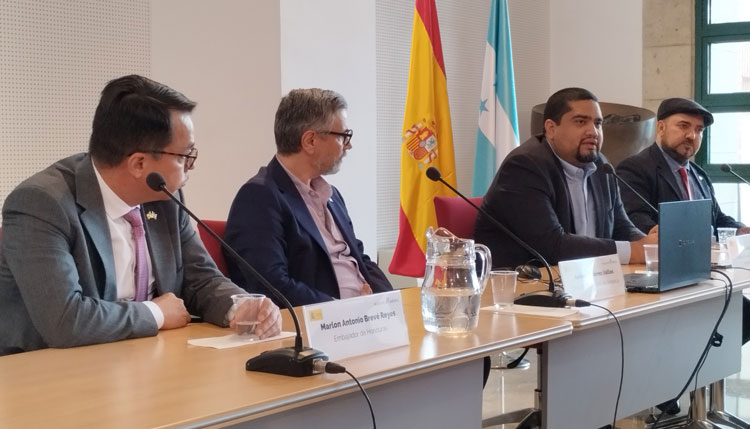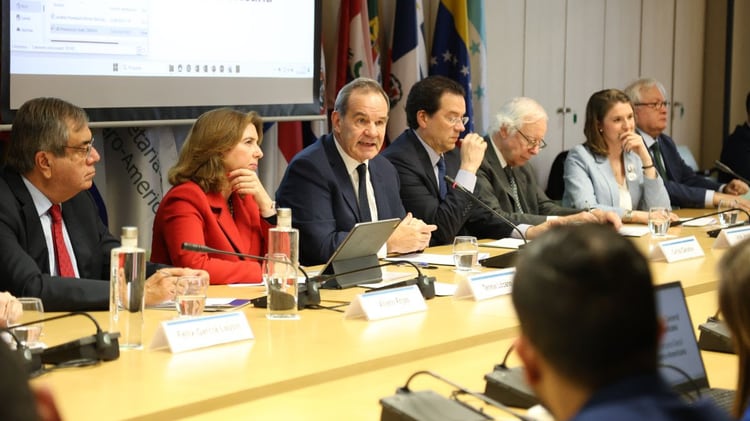Juan David Latorre
The Embassy of Honduras presented last Thursday at the Museum of America in Madrid the next edition of the Bicentennial Compendium of the History of Honduras, led by the Minister of the Ministry of Social Development (SEDESOL), José Carlos Cardona, who detailed in detail the lines that will mark the content of the same.
The work will be divided into four volumes, corresponding to the pre-Hispanic, colonial, republican and modern eras.
The objectives of this edition are to rethink the meta-narrative of the history of Honduras, constructed in a disorderly manner and based on positivist liberal precepts. It also aims to include historical processes that are defining for present-day Honduras and to provide explanations for present-day situations that lack a historical explanation.
Minister Cardona also stressed that this Compendium addresses “the need for visions told from the subaltern classes, and proposes a balance between the rescue and updating of texts considered classics and the incorporation of new approaches and perspectives that reach up to the present day”. Finally, he pointed out, “it is an opportunity to identify, index and compile unpublished documentation in archives that until now have been difficult for our researchers to access”.
On the other hand, on Monday 22 April, the Minister José Carlos Cardona, detailed the progress and goals that his government is making with the Honduran Social Protection System at the SEGIB Ibero-American General Secretariat’s Conversatory.
The main objective of this system is the application of intervention measures for vulnerable population groups in order to combat poverty.
“Sectors such as vulnerable school-age children, said Minister Cardona, destitute people, forcibly returned migrants, people with disabilities, vulnerable older adults, displaced people and those affected by natural disasters, drug addicts, discrimination for having contagious diseases, displaced victims of violence, discrimination for belonging to the LGTBQ+ community, discriminated ethnic minorities or human rights defenders are the main vulnerable groups targeted by this social protection”.
In the words of the minister, this Social Protection System aims to implement “a package of social services in the sectors of education, health, infrastructure and environment, capacity building, human rights and social leadership, social protection and local and human empowerment. The indicators to be impacted are 53% extreme poverty, 75% poverty, 18% rural illiteracy, 60% of children under 5 years of age with chronic malnutrition and 62% housing deficit”.
José Carlos Cardona pointed out that his government pays more than one million children one meal a day to take care of their nutrition. As for the policies implemented by the Honduran government, he stressed that “in 2023, special emphasis has been placed on school feeding, disability and the prevention of teenage pregnancies. And in this year 2024, special attention is being paid to a policy for a comprehensive care system, the policy for the elderly is being updated, as well as the policy on forced displacement and the policy for the National Coordination of Indigenous and Afro-Honduran Peoples, (CONAPOA)”, whose purpose is the study and creation of public policies concerning the relationship between the State and the country’s indigenous and Afro-descendant peoples, formulating programmes and/or projects on a technical basis that will be implemented by the competent body.








